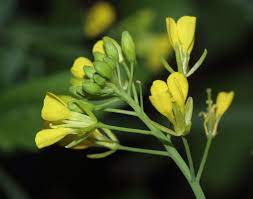Brassica juncea, commonly known as mustard, is a versatile crop with several uses in sustainable agriculture. This article will explore the benefits and applications of Brassica juncea in crop rotation, pest management, soil improvement, and biofuel production.
According to a study published in the Journal of Environmental Quality, Brassica juncea is an excellent candidate for crop rotation due to its ability to improve soil quality and reduce soil-borne diseases. This crop has also been found to be effective in managing pests, such as nematodes and weeds. Mustard acts as a biofumigant, releasing compounds that suppress harmful organisms in the soil.
In addition, Brassica juncea is a source of biofuels. A study published in Biomass and Bioenergy found that mustard seed oil has the potential to replace diesel fuel in small-scale engines. This could provide an alternative energy source for rural farmers, reducing their reliance on fossil fuels.
Furthermore, Brassica juncea can be used as a cover crop, protecting the soil from erosion and improving soil structure. The crop has a deep root system that helps to break up compacted soil, allowing water and nutrients to penetrate more easily. This improves soil health, leading to better crop yields.
In conclusion, Brassica juncea is a versatile crop that offers numerous benefits to sustainable agriculture. Its ability to improve soil quality, manage pests, and provide an alternative source of energy makes it a valuable addition to any farming system.
#BrassicaJuncea #Mustard #SustainableAgriculture #CropRotation #PestManagement #SoilImprovement #BiofuelProduction #CoverCrop #SoilHealth #FarmingSystem












